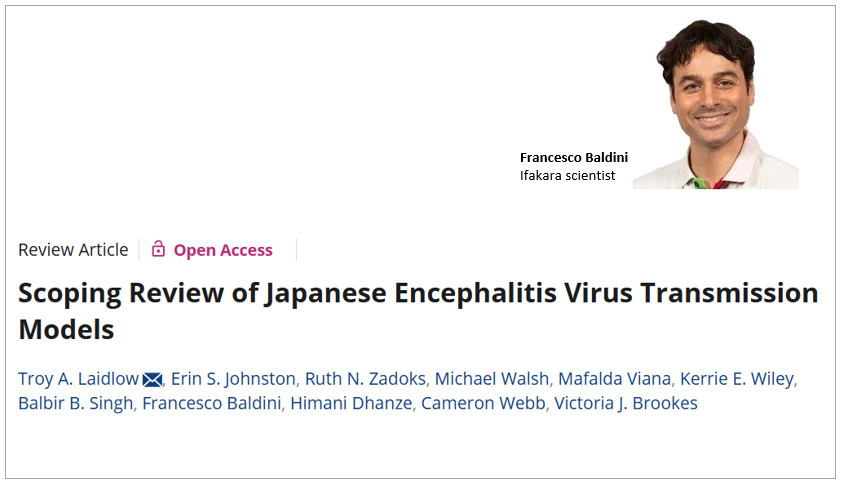
MODELING: Using math and science to fight a deadly mosquito virus

Japanese Encephalitis Virus (JEV) is a mosquito-borne illness that causes around 100,000 infections and 25,000 deaths each year—mostly affecting children in Southeast Asia and the Western Pacific.
While the virus isn’t common in Africa, scientists around the world are joining forces to better understand its spread and find ways to protect vulnerable communities. Among them is Dr. Francesco Baldini, a vector biologist who works as a Senior Lecturer at the University of Glasgow in the UK and serves as a Visiting Scientist at the Ifakara Health Institute in Tanzania.
Studying how tools are predicting outbreaks
Dr. Baldini and his international team of researchers carried out a scoping review of 29 published models that simulate how JEV spreads between animals, mosquitoes, and humans. These models are like computer-based maps of how the disease could move through a population.
By studying them, the researchers aimed to see how useful these tools are in predicting outbreaks and guiding health decisions like vaccination campaigns and mosquito control strategies.
Models offer insights but lack details
Most of the models focused on just three key players in the virus transmission chain: humans, mosquitoes, and pigs. While 10 models used real-world data to test their accuracy, the rest were theoretical, based only on assumptions and estimates.
The review showed that while these models offer useful insights, many of them lacked details about local environments—like how mosquito populations respond to rainfall—or weren’t thoroughly tested against data from actual outbreaks. These limitations make it harder to fully rely on the models for making health decisions.
Bridging expertise from the UK, Tanzania
Although Japanese Encephalitis hasn’t been reported widely in Africa, the lessons from this study are important for countries like Tanzania. With growing concerns about mosquito-borne illnesses—like malaria and dengue—understanding how to build and use reliable transmission models is a valuable skill.
Dr. Baldini’s contribution bridges expertise from the UK and Tanzania, highlighting how global partnerships can strengthen disease prevention not just in Asia, but everywhere.
The study was a collaborative effort involving an international team of experts from multiple prestigious institutions. Alongside Dr. Baldini, contributors included researchers from the University of Oxford, Mahidol University in Thailand, and the London School of Hygiene & Tropical Medicine.
This diverse group brought together expertise in epidemiology, vector biology, and public health modeling, strengthening the study’s comprehensive approach to understanding Japanese Encephalitis Virus transmission and control strategies across different regions.
Read the full study here.
